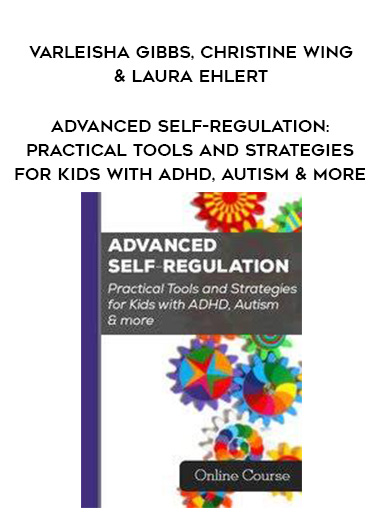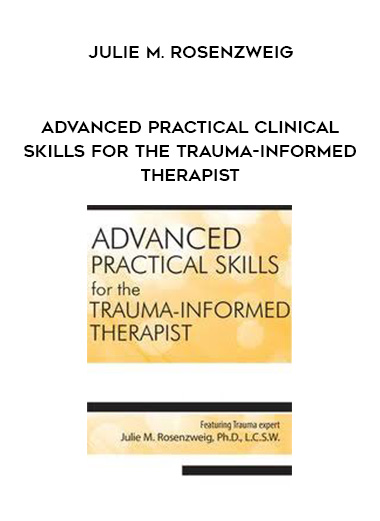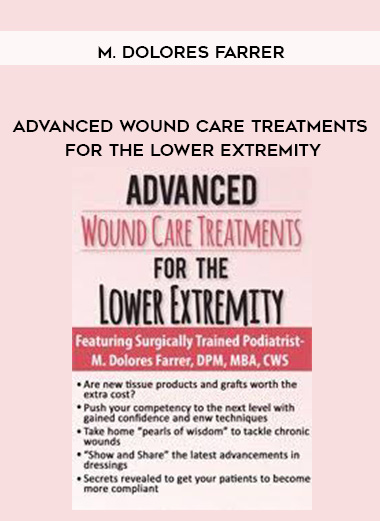Advanced Self-Regulation: Practical Tools and Strategies for Kids with ADHD, Autism & more – Varleisha Gibbs, Christine Wing & Laura Ehlert
Constant interruptions like temper tantrums, outbursts, melt-downs, impulsive behaviors, and violence are some of the most challenging behaviors you see in your practice. They can interrupt your therapeutic interventions and stall progress completely – and if left untreated, these behaviors can lead to depression or anxiety disorders later in the child’s life.
Teaching children to intentionally and effectively regulate feelings, thoughts, and behaviors can be difficult, especially when conditions such as ADHD, autism, learning disabilities, and sensory disorders are present. And unfortunately, self-regulation techniques are not one-size-fits-all approaches – they need to be customized to each individual child.
That’s why we’ve brought together leading experts from the fields of speech language pathology, psychology and occupational therapy, for this new, comprehensive course Advanced Self-Regulation: Practical Tools and Strategies for Kids with ADHD, Autism & more.
Learn how you can create an individualized treatment plan filled with advanced, evidence-based tools and strategies to help resolve the dysregulation your client is experiencing — so you can help the children in your care find success in everyday life.
*Limited time FREE BONUS! Register today and you’ll get 82 bonus mindfulness techniques, hands-on activities, worksheets, assessments, exercises and coloring pages… absolutely free!
Module 1 :
Module 1: Self-Regulation in Children: Keeping the Body, Mind & Emotions on Task in Children with Autism, ADHD or Sensory Disorders
with Varleisha Gibbs, Ph.D., OTD, OTR/L
Explore how easy-to-implement treatment techniques such as yoga, mindfulness, cognitive behavioral therapy, music therapy, and sensory diets can help children with autism, ADHD, and sensory processing disorders. Learn the science behind self-regulation issues, and discover practical interventions to help these children achieve favorable therapeutic outcomes. You will walk away with the ability to create simple but effective programs in clinical, school and home settings. You’ll also:
- Explore ADHD comorbidity with self-regulation issues
- Learn the neuroscience behind self-regulation
- Understand how to differentiate sensory processing/modulization disorders
- Learn how to implement sensory diets
Module 2 :
Module 2: Improve Self-Regulation Through Language and Communication Skills
with Christine Wing, Ph.D., CCC-SLP
Communication skills play an extremely important role in the development of self-regulation. In this module, you will get immediately applicable techniques through case studies and intervention videos, and discover new and innovative ways to help children develop self-regulation through language. You will also learn how to use language to improve self-regulation for children with:
- Language delays/disorders
- Emotional & Behavior Disorders
- Attention deficit/hyperactivity disorder
- Attachment disorders
- Autism
- Social Risk
Module 3 :
Module 3: Self-Regulation: Proven Strategies for Children with ADHD, High-Functioning Autism, Learning Disabilities or Sensory Disorders
with Laura Ehlert, Psy.D.
This module will help you to better intervene with the challenging child—the one who won’t sit still, doesn’t follow directions, often throws tantrums, or has difficulty waiting for their turn. They may “hit first and ask questions later,” react impulsively and have difficulty expressing what they need. Even though this child is intelligent, caring and kind, their behavior doesn’t reflect these positive qualities – which is confusing and frustrating for their parents, teachers and peers. Discover how to help the child who’s struggling to meet basic expectations and succeed due to challenging behaviors.
Here’s what you’ll learn in this module:
- Formula for self-regulation and successful sensory integration
- Tools to access the sensory processing disorder subtypes
- Strategies to improve executive functioning skills
- Behavioral strategies to improve self-regulation
- Calming/arousing activities to use with clients




